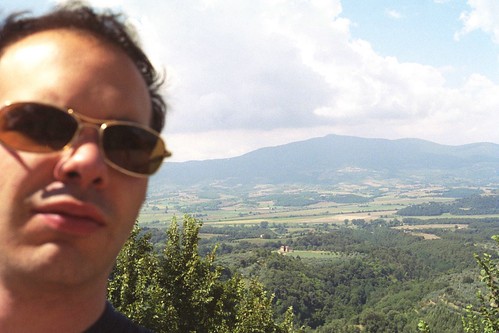
But other paths also led to the same stochastic crossroads - first of all, natural events such as the collision of hail or rain with hard surfaces, or the song of cicadas in a summer field. These sonic events are made out of thousands of isolated sounds; this multitude of sounds, seen as a totality, is a new sonic event. This mass event is articulated and forms a plastic mold of time, which itself follows aleatory and stochastic laws. If one then wishes to form a large mass of point-notes, such as string pizzicati, one must know these mathematical laws, which, in any case, are no more than a tight and concise expression of chain of logical reasoning. Everyone has observed the sonic phenomena of a political crowd of dozens or hundreds of thousands of people. The human river shouts a slogan in a uniform rhythm. Then another slogan springs from the head of the demonstration; it spreads towards the tail, replacing the first. A wave of transition thus passes from the head to the tail. The clamor fills the city, and the inhibiting force of voice and rhythm reaches a climax. It is an event of great power and beauty in its ferocity. Then the impact between the demonstrators and the enemy occurs. The perfect rhythm of the last slogan breaks up in a huge cluster of chaotic shouts, which also spreads to the tail. Imagine, in addition, the reports of dozens of machine guns and the whistle of bullets adding their punctuations to this total disorder. The crowd is then rapidly dispersed, and after sonic and visual hell follows a detonating calm, full of despair, dust, and death. The statistical laws of these events, separated from their political or moral context, are the same as those of the cicadas or the rain. They are the laws of passage from complete order to total disorder in a continuous or explosive manner. They are stochastic laws.
= Iannis Xenakis - Thought and Mathematics in Composition
Sometimes I wonder to what extent the Trust of Man has disappeared following the 20th century carnage that was Europe. Perhaps a pointless question, but has this period determined a lasting fear of the "irrational" Forces of Man to the point of striving to always divorce patterns of their moral context? And if there are benefits to the irrational parts of human mind, will this fear destroy those too? Such basic wonder - yet it sometimes feels to be the most fundamental issue...
This tea is good - loose tea makes all the difference - especially when the morning is so cold.

No comments:
Post a Comment